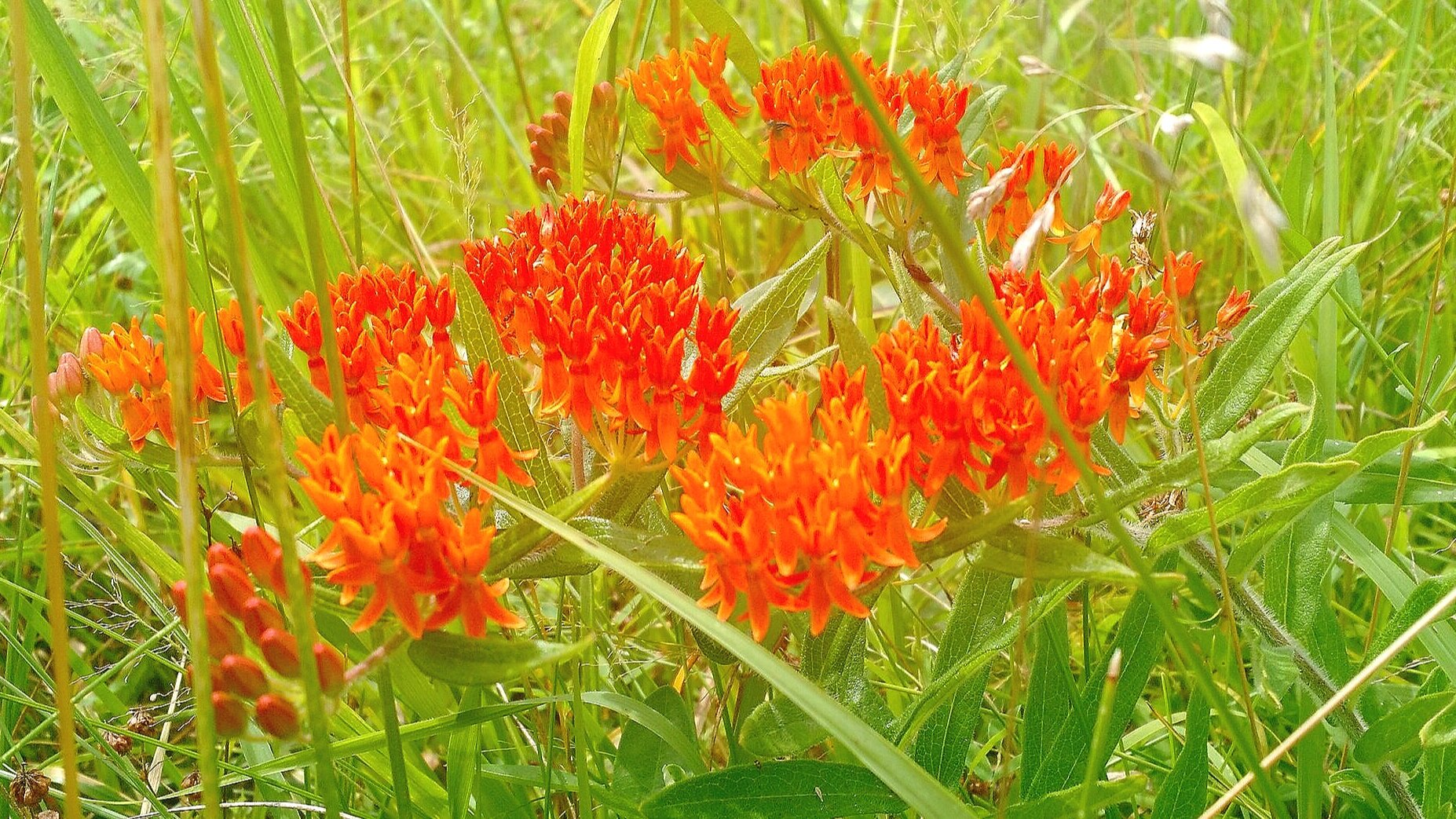Asclepias tuberosa is arguably the most popular species of milkweed in the Southeast, owing to its versatility in a range of conditions, and its attractive appearance in the landscape. The bright orange-red blossoms are definitely show-stoppers, able to compete with any ornamental garden flower. But Asclepias tuberosa is also a hardy perennial, able to withstand harsh winters and hot summers. Its long taproot gives it high drought tolerance - don’t be surprised if leaves wait to emerge until June, it is certainly a wildflower of summer. Roots should be handled with care during the initial planting and transplanting can be challenging afterwards. However, the low profile and compact nature of this species means it can be placed close to other plants or borders without crowding.
Milkweeds of the Asclepias genus are the only food source in our region for caterpillars of the iconic Monarch butterfly (Danaus plexippus). A number of other species of butterflies also use milkweeds as a larval food source, and milkweed flowers are attractive to a wide range of pollinators. In particular are beneficial insect predators such as syrphid flies and predatory wasps, so it can be a natural method of biological control.
Pollinators: bumblebees, long-horned bees, leafcutter and resin bees, halictid bees, honey bees, butterflies, thick-headed flies, bee flies, syrphid flies, wasps, soldier beetles
Host Plant for Butterflies/Moths: A dozen or more Lepidoptera species, including Tiger moths, Cecropia moths
Dependent Species: Monarch (Danaus plexippus), Unexpected Cycnia (Cycnia inopinatus), Milkweed Tussock Moth (Euchaetes egle), Queen (Danaus gilippus)
Wildlife Value: Hummingbirds, Songbirds, Thrushes, Wood Warblers
Deer Resistance: Good
Native Region: Appalachian Mountains, Piedmont, Coastal Plain
Seed Origin: VA Ecotype
Ecoregion: 66 - Blue Ridge
USDA Zones: 3-9
States found in our region: AL, DE, GA, KY, MD, NC, PA, SC, TN, VA, WV
Other states found: AR, AZ, CO, CT, FL, IL, IN, IA, KS, LA, ME, MA, MI, MN, MO, NE, NH, NJ, NM, NY, OH, OK, RI, SD, TX, UT, VT, WI






